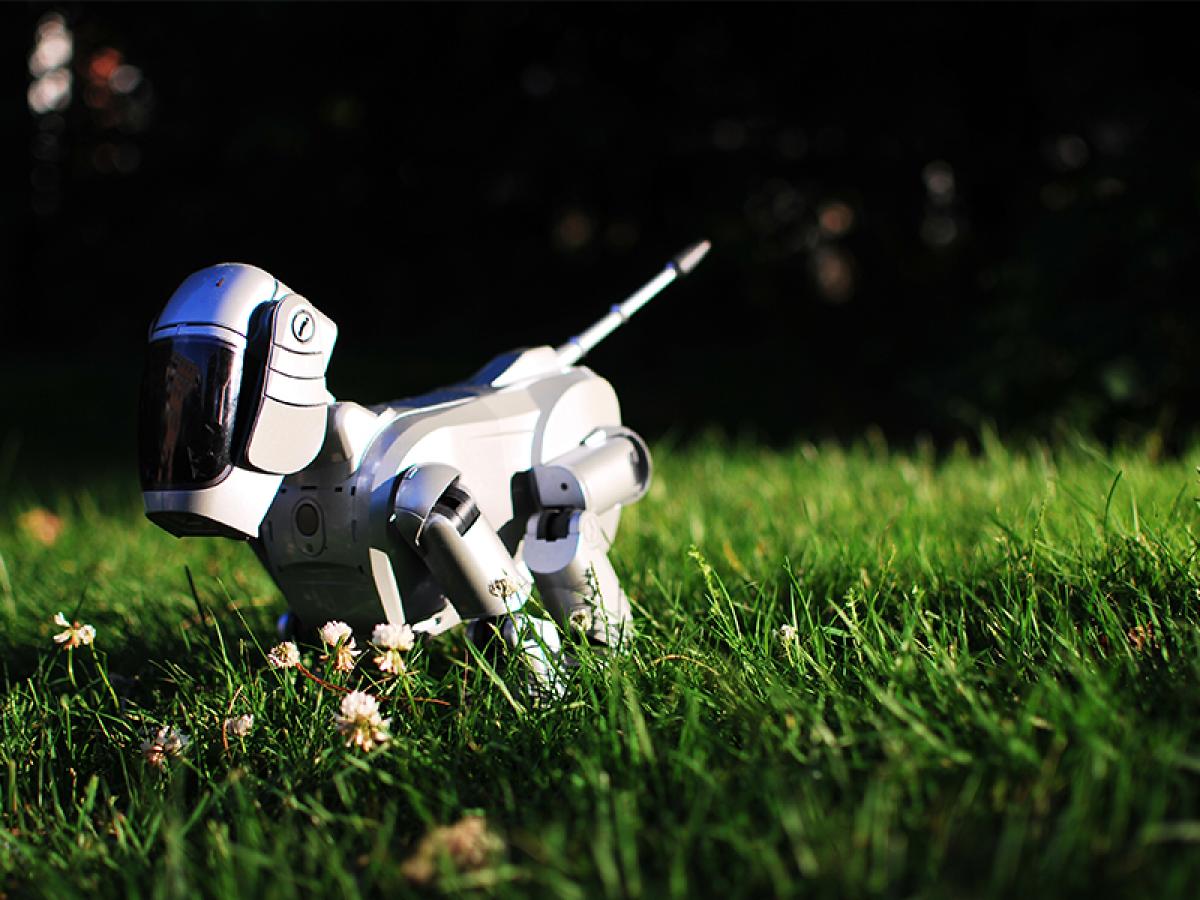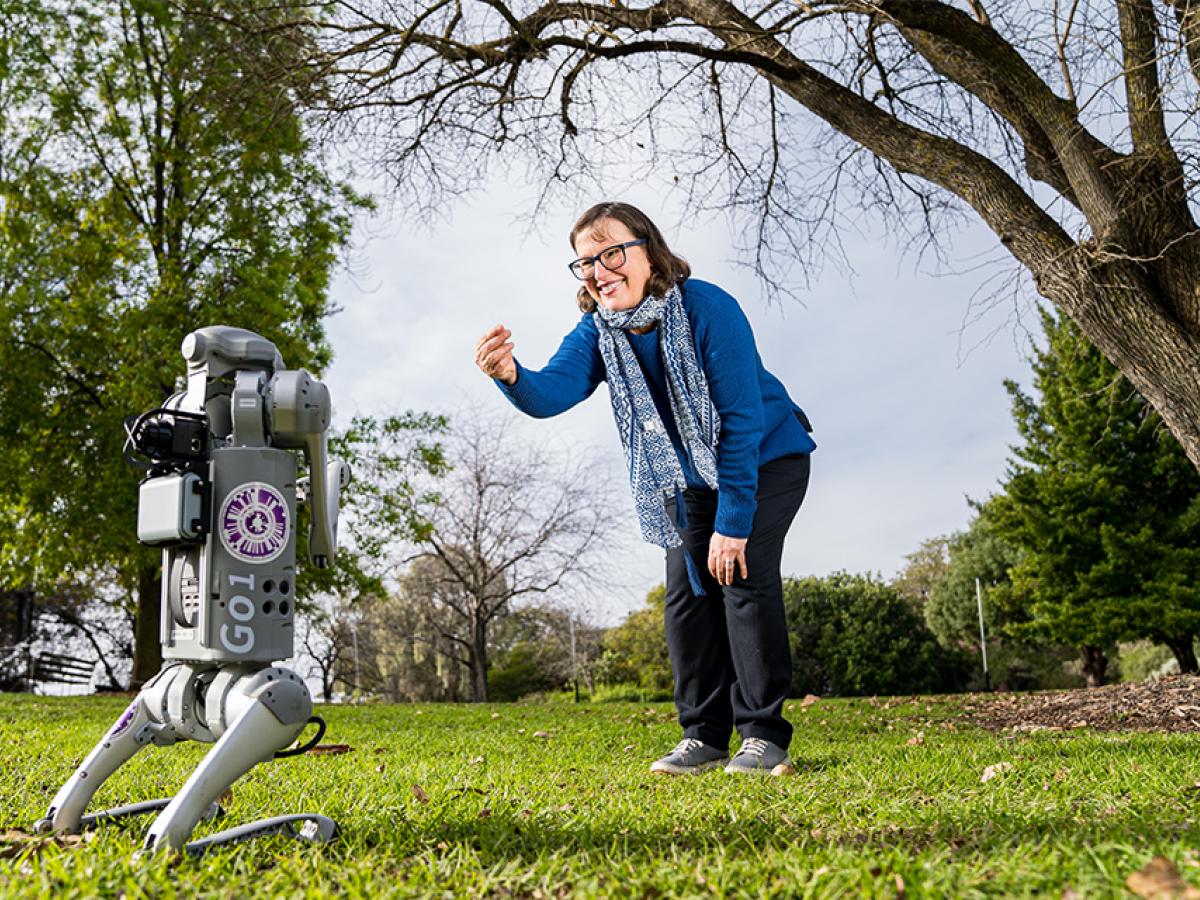Are robot dogs fetching?

Sony’s original robot dog, AIBO
I know my dogs love me even without using artificial intelligence (AI).
But in the future AI will affect our pets and our relationships with them. How much remains to be seen, but we have evidence already of some of these changes.
Although people love their dogs, raising puppies can be extremely stressful. Ana Costa is doing her PhD on the experience of people raising a puppy. She has adapted a measure of parental stress and recruited people from Reddit groups.
Some people are so stressed they consider returning or re-homing their puppy. One participant wrote about “overwhelming failures, constant setbacks, fearing I’ll ‘ruin’ or ‘damage’ the puppy”. If raising real puppies can be so stressful, is there an easier way?
The robot dog AIBO was designed by Sony in the late 1990s as an example of what could be done with a robot. It was never meant to replace real dogs. Yet people grew real attachments to what in practice was a simplified version of a dog.
When Sony decided it was not commercial to keep producing robotic dogs, they gradually wore down and could only be maintained by cannibalising the parts of other AIBOs, until none were left. People genuinely mourned them when they ‘died’.
“What if we could program robots to help our pets live a happier life?”
But robots are not sentient. Does that mean we should have less empathy towards them compared to a real dog or cat? And if we had less empathy, would we then have less empathy towards a real dog or cat in the future?
We also need to consider other negative outcomes. Judith Donath, a Fellow at Harvard University, says in her recent work The Robot Dog Fetches for Whom?, that the problem with a robotic dog is that we would need to know who controlled it. Robots could be clever marketing tools to get us to consume more, or track our emotions and consumer patterns to better understand how to advertise new products. Do we really want that?
AI will certainly have other positive impacts on pets. Machine learning can be used to better diagnose diseases in our pets. A recent editorial in the Veterinary Record in the UK suggested AI would not replace veterinarians, but if you decided not to use AI your clients would likely find another vet and you would be left behind.
Technology is used to track our dogs already. Collar tags tell us how active they are and when they sleep, and in future new algorithms could interpret all this data.

Susan Hazel plays with Kadli, AIML’s robot dog
Peoples’ lives are saved when their phone alerts them to a change in heart rate. What if we were alerted if something was going wrong with our dog?
My old Labrador Fergus died acutely when he haemorrhaged due to lung tumours we didn’t know were there. I’m in two minds whether I would have wanted to know beforehand, when there was nothing we could do.
What if we could program robots to help our pets live a happier life?
One of the problems that increased post-COVID was separation anxiety in dogs, especially with COVID puppies when we returned to work.
Separation anxiety is not trivial for dogs, they suffer extreme distress and can destroy back doors and sofas. AI has already been used to help with early diagnosis using wearable sensors.
Dogs will also be affected indirectly by how AI changes future work. If it enables a standard four-day week I know our dogs would love that as much as we would.
We know there is a dark side of pet ownership; in domestic violence situations women don’t leave their abusive partners if they are unable to take their pets with them.
Since shelters don’t often take pets, this can mean they stay rather than leave as they don’t want their pet to be left behind. What if AI was used to monitor our pets, with an automatic reporting system if the pet was being abused? But who would go to save them?
I’ve focused on dogs, but of course there will be changes for other pets. A robot could be a play companion for cats, shining lights, or ringing bells, or moving wand toys programmed to react as a person would.
Could AI tell you which pet you should or could have in the future? No, you are too neurotic to be a cat owner, but a ferret would suit your personality and your lifestyle perfectly. You are too houseproud for a Labrador and their hair-shedding, but a poodle would be perfect. Or would housework also be a thing of the past? We can always dream.
Yet the problem with AI is that sometimes it tries to make predictable the parts of our lives that cannot be predicted. And I think the unpredictable parts are what make life worth living. Life is not about being happy all of the time. No yin without yang, no loving a pet without bearing some cost.
The genius of the robotic dog AIBO was that it was programmed to be unpredictable. The programmers set what the robots emotional state was likely to be based on ethological principles, and if AIBOs were happy they were more likely to wag their tail when you patted them, and less likely to growl or move away. But not 100 per cent. Sometimes their behaviour could not be predicted. Not as unpredictable as a real dog, but real enough that people have mourned the loss of their AIBO as though it was a real dog.
AI will certainly pose new ethical challenges as it changes our lives. AI pioneer Dr Geoffrey Hinton has left Google and openly written about its future dangers. There will also be benefits – let’s make sure to extend these to the non-human animals we share our lives with.
Story by Susan Hazel, Associate Professor at the School of Animal and Veterinary Science, Roseworthy campus.
